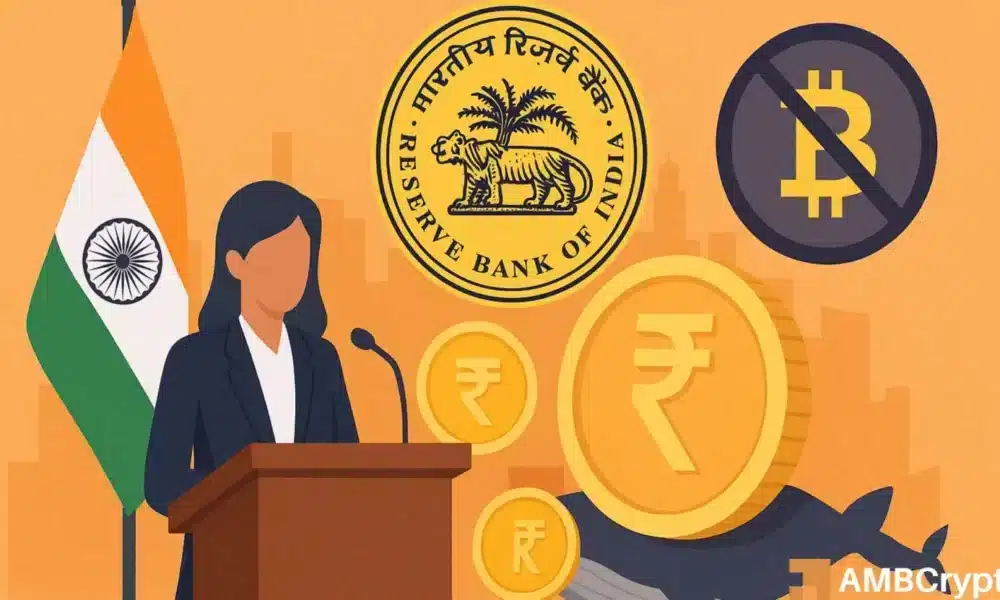India’s Stance on Cryptocurrencies: A Measured Approach Towards Digital Transformation
As countries around the globe grapple with the complexities of cryptocurrencies, India has articulated a discernible position, rejecting unbacked digital assets while advocating for regulated alternatives. The Indian government, led by Union Minister Piyush Goyal, has made it clear that they support only those digital currencies that fall under the supervision of the Reserve Bank of India (RBI). This SEO-optimized article delves into India’s strategic stance on cryptocurrencies, the reasons behind it, and the potential implications for both consumers and the economy.
India’s Rejection of Unbacked Cryptocurrencies
Union Minister Piyush Goyal has strongly emphasized India’s aversion to cryptocurrencies lacking any form of sovereign or asset backing. According to Goyal, India aims to create an ecosystem that prioritizes security and regulatory compliance. The rationale is to foster trust among users and financial institutions alike, thereby encouraging broader adoption of digital currencies that are safe and reliable. Goyal articulated this vision, stating, “We have not been encouraging cryptocurrency, which does not have sovereign backing.” The focus is firmly placed on RBI-backed digital currencies, which aim to streamline transactions and reduce reliance on traditional banking systems.
Promoting RBI-Backed Digital Currencies
The Indian government is not merely rejecting unregulated cryptocurrencies; it is actively promoting a digital currency that is backed by the RBI. This initiative is designed to facilitate faster, traceable, and paperless transactions, which could significantly enhance the user experience when compared to traditional banking methods. Goyal believes that these innovations will simplify transaction processes, reduce paper consumption, and bolster traceability, thus creating a more efficient payment infrastructure. By endorsing an RBI-backed digital currency, India is positioning itself to leverage the benefits of digital innovation while maintaining regulatory oversight.
The Evolving Crypto Landscape in India
Despite the cautious regulatory framework, India’s cryptocurrency market continues to experience robust growth. In fact, India leads the Global Crypto Adoption Index for 2025 and consistently ranks highest in on-chain transaction volume within the Asia-Pacific region. The rising interest in cryptocurrencies can be attributed to a combination of grassroots usage and institutional adoption, indicating a burgeoning acceptance of digital assets in various sectors. Organizations like the Bharat Web3 Association are instrumental in promoting cryptocurrencies as a secure method for value transfer, reflecting the changing landscape of digital finance in India.
Addressing Global Monetary Shifts
Finance Minister Nirmala Sitharaman has highlighted the significance of global monetary transitions, indicating that innovations like stablecoins are reshaping the landscape of money and capital inflows. She emphasized that these shifts may compel nations to make critical choices: adapt to new forms of monetary architecture or risk exclusion from the global economic community. As countries worldwide embrace cryptocurrencies and blockchain technology, India recognizes the potential repercussions of remaining stagnant amidst these changes. Sitharaman’s assertion sheds light on the urgency for adaptation in an evolving financial ecosystem.
Initiatives and Future Prospects
As cryptocurrency adoption accelerates globally, India is also taking proactive steps to ensure its citizens and public officials are well-equipped to navigate the digital landscape. Initiatives like the UNDP’s Government Blockchain Academy are designed to provide policymakers with the necessary tools and knowledge to engage effectively with emerging technologies. By investing in educational programs, the Indian government aims to foster a better understanding of cryptocurrencies, thus preparing its workforce for future economic transformations.
Conclusion: A Balanced Approach to Digital Currency
In conclusion, India’s measured approach towards cryptocurrencies reflects a commitment to regulatory compliance and consumer safety. By favoring RBI-backed digital currencies and discouraging unregulated options, the Indian government aims to create a secure financial environment that encourages innovation while protecting users. As global trends in digital finance evolve, India’s proactive initiatives and readiness to adapt may position it as a leader in blockchain technology and cryptocurrency adoption in the years to come. As the digital economy expands, fostering a secure and compliant landscape will be essential for unlocking the full potential of cryptocurrencies in India.


